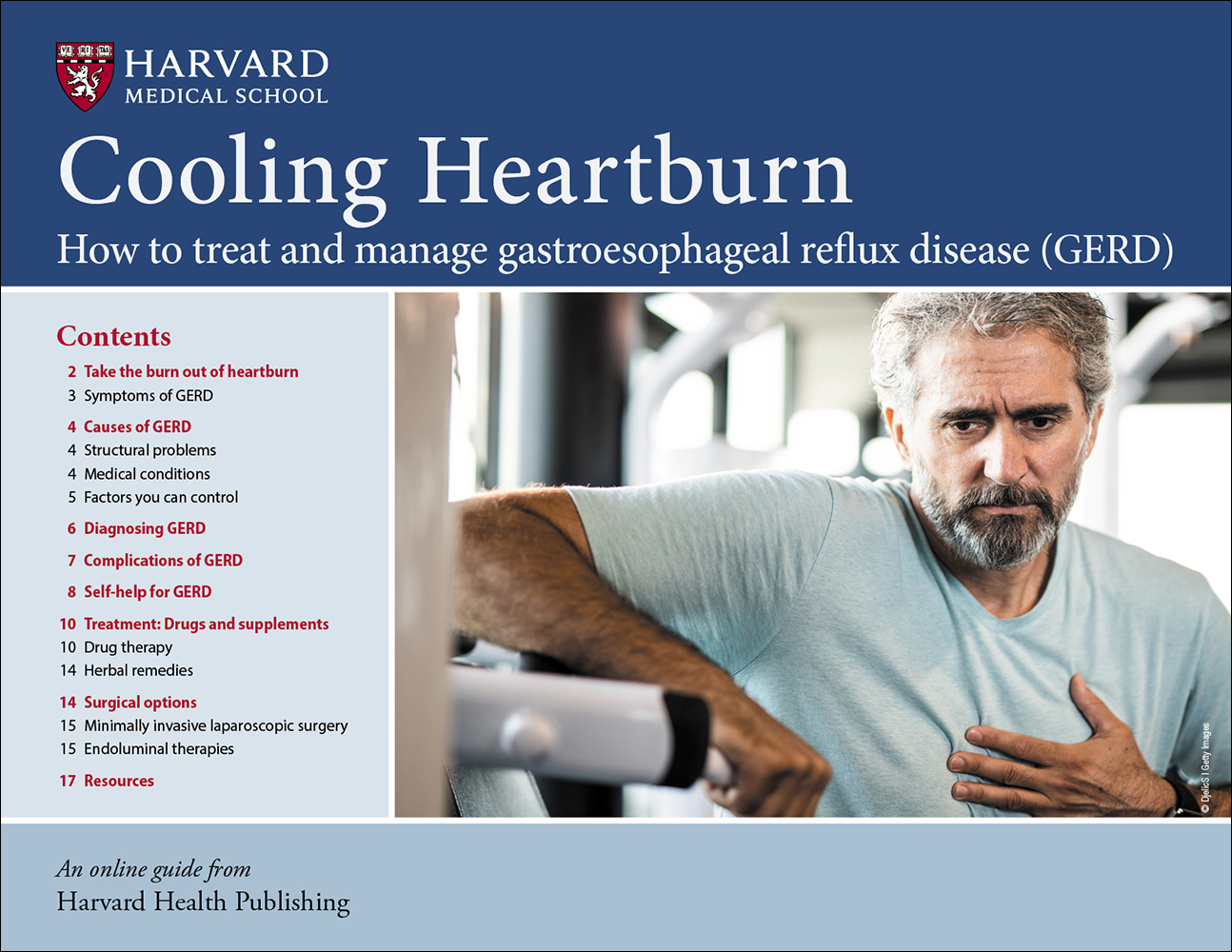Should I worry about the side effects of proton-pump inhibitors?
On call

Q. I have had intermittent heartburn for years. My doctor ordered an upper endoscopy to look at my esophagus and stomach. My esophagus is inflamed due to acid reflux. I was told to stay on prescription-strength pantoprazole indefinitely. But I worry about side effects. If I eat less acidic foods and don't experience heartburn, is it necessary to take this drug to keep my esophagus healthy?
A. Pantoprazole (Protonix) is a proton-pump inhibitor (PPI). Drugs in this class are the most potent acid inhibitors. Examples of other PPIs include esomeprazole (Nexium), lansoprazole (Prevacid), omeprazole (Prilosec), and rabeprazole (AcipHex). Most are available in low doses and less expensive generic formulations over the counter. Doctors can prescribe higher doses if needed.
There is no simple yes-or-no answer to your question, but here is how I approach this common situation. First, I would ask these questions: Did you have the endoscopy because the heartburn was more frequent or severe? Were you taking any acid blockers before the endoscopy, and if yes, at what dose and for how long?
These questions are to understand the severity of your esophageal inflammation (esophagitis). If your reflux was severe, or if you had been on treatment for a few weeks before the endoscopy and still had visible esophagitis, your doctor's recommendation sounds correct. Treating esophagitis with a high-dose PPI is not just about controlling symptoms. Persistent severe esophagus inflammation from acid reflux can lead to scarring and narrowing of the lower esophagus. It also increases your risk of developing a condition called Barrett's esophagus, which can lead to cancer.
Most people who take PPIs have minimal, short-term side effects. PPI use is associated with a slightly increased risk of infections. It's possible to develop lower blood levels of vitamin B12 or magnesium. Studies looking at other long-term concerns regarding bone thinning, dementia, and kidney disease have provided some reassurance that PPIs are not the cause.
Many people with acid reflux and esophagitis can use less potent anti-acid therapy. Your doctor may advise a repeat upper endoscopy before making any changes, or you might begin to taper down first.
If you and your doctor decide it's the right time to transition, you will want to do it gradually. Never stop the acid blocker abruptly, as this could lead to rebound heartburn, since your body is used to the medication.
It's also important to maintain lifestyle changes to reduce acid reflux, including losing weight if needed, not lying down after eating, and avoiding foods that typically cause heartburn.
Image: © WLADIMIR BULGAR/SCIENCE PHOTO LIBRARY/Getty Images
About the Author

Howard E. LeWine, MD, Chief Medical Editor, Harvard Health Publishing; Editorial Advisory Board Member, Harvard Health Publishing
Disclaimer:
As a service to our readers, Harvard Health Publishing provides access to our library of archived content. Please note the date of last review or update on all articles.
No content on this site, regardless of date, should ever be used as a substitute for direct medical advice from your doctor or other qualified clinician.
















